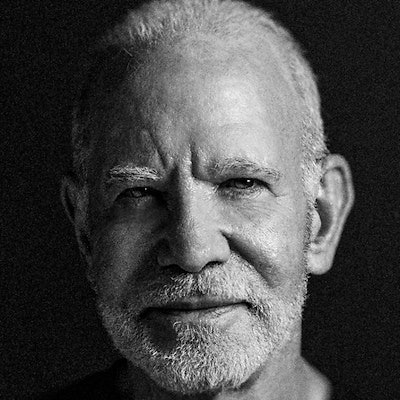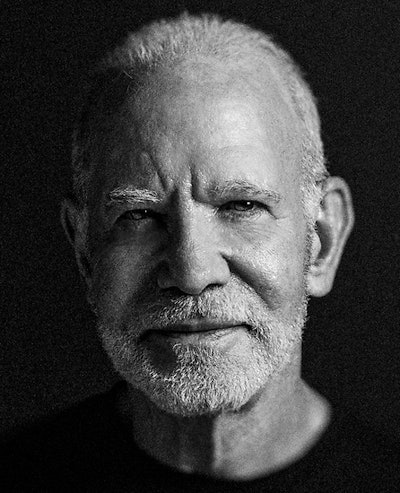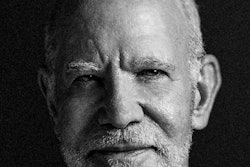
There are certain core competencies that great leaders possess that ordinary leaders do not have to the same degree. These competencies are tremendous inner focus and the ability to be genuinely empathetic.
Competency 1: Inner focus
The first competency of great leadership is inner focus. Leaders need to understand the language of their bodies. The most successful leaders I have worked with invariably state in one form or another, "If it doesn't feel right, I won't go ahead with the deal."
 Dr. Marc Cooper.
Dr. Marc Cooper.Successful leaders can tune into their "gut." It's an inner sense. This inner sense is their integrity rudder. They ask, "Is what I am about to do in line with my values, purpose, vision, and ethics?" Their "gut" has this answer.
Being aware of your gut feelings can ensure your decisions are in line with who you are. When you have integrity to your values, purpose, vision, and ethics, you have the most integrity and, therefore, the most power.
The decisions you make are not something you first answer with words. You answer with feelings. It's something that either feels right or it doesn't, then you put it into words.
Great leaders trust their gut, not what others tell them they should do. Great leaders know their body can pick up on bad vibrations. They trust something deep inside them that says something is not right about a person or situation.
Competency 2: Other-focused/empathy
The second competency of extraordinarily successful leaders is they can "read" people. They can "tune into" people, and what gives them this ability to read people is their empathy, which allows them to understand and share the feelings of others.
According to Daniel Goleman, the preeminent expert on emotional intelligence, there are three kinds of empathy.
The first is cognitive empathy, which is when leaders understand how the other person thinks about things. Great leaders understand why the other person thinks the way he or she does. They understand the other person's mental model and how he or she sees the world. This allows the leader to use words that really resonate with the other person. Their communication now has a far greater impact and produces better understanding and performance by the other person. They can now speak in the language of the other person.
Many personality profiles like DiSC, Myers-Briggs, the Hogan Personality Inventory, and Personalysis give a good picture of how the other person will respond under varying circumstances. Cognitive empathy is much more easily generated. However, the other two forms of empathy cannot be achieved with information or data.
The second kind of empathy is emotional empathy. Emotional empathy is an immediate felt sense of what's going on in the other person. Leaders sense on a visceral level what is really behind the other person's words. Leaders can feel what the other person is feeling. They can stand in the other person's emotional shoes. They can do this because they have great emotional intelligence themselves. They are very much in touch with their own feelings, which allows them to "get" what the other person is feeling. Unfortunately, getting in touch with your feelings is not high on many leaders' development plans.
The third kind of empathy is empathetic concern. Not only does a leader know how the other person thinks and how the other person feels, the leader is also searching for how they can contribute. They ask, "Is there something you need that I can help you with?" Great leaders are predisposed to help.
Conclusion
Most leaders I encounter have a substantial amount of cognitive empathy but are weak in the other two. Leaders who lack emotional empathy and empathetic concern drive hard to make their numbers -- and they often do. But without empathetic concern, they also drive people out of their organization. Without emotional empathy and empathetic concern, people don't feel cared for, and people who don't feel cared for ultimately leave.
In my work with leaders, I've seen how someone who lacks these three empathies struggles in their leadership. Fortunately, these empathies live in all human beings, but there are often layers of "stuff" that prevent emotional empathy and empathetic concern from being fully expressed. Part of my work concentrates on removing those interfering layers so that a leader can have powerful inner focus and be authentically empathetic.
Dr. Marc Cooper is the president of MBC Consultants. Cooper has worked throughout the healthcare industry during his career, with the majority of his clients being in the dental industry. His current focus is coaching leaders, dentists, and senior executives on how to effectively navigate their organizations and lead their respective teams during this period of tremendous uncertainty.
The comments and observations expressed herein do not necessarily reflect the opinions of DrBicuspid.com, nor should they be construed as an endorsement or admonishment of any particular idea, vendor, or organization.


















